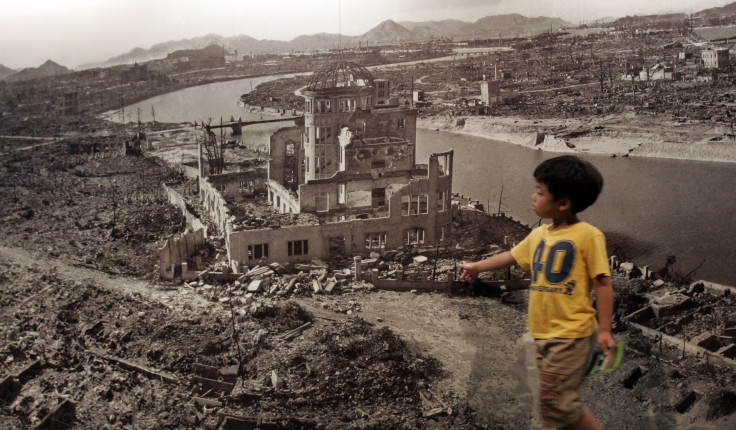70th Hiroshima anniversary on Thursday, annual Lincoln lantern float scheduled on Saturday

As the 70th anniversary of the Hiroshima and Nagasaki bombings draw near, preparations are being made to commemorate the incident that happened on Aug. 6 and Aug. 9, 1945. There will be a traditional Japanese ceremony and the survivors of the atomic bombings will share the stories of their personal experience with the help of Japanese officials.
Hiroshima city official Ayami Shibata revealed in a report from USA Today that there are now fewer people who can share their stories because the survivors are getting old and are disappearing. Shibata’s goal is to teach people to pass along their stories so they will not be lost and forgotten.
“For many years, the hibakusha or atomic bomb survivors were reluctant to talk about it, because we suffered so much discrimination,” Hiroshima survivor Keiko Ogura, 78, said in the USA Today report. The discrimination came from the other Japanese who have speculative fears that atomic bomb survivors could spread radiation-related diseases.
Ogura decided in the early 1980s that the hibakusha should start sharing their stories. Ogura even organised a group of interpreters to converse with foreign visitors at the Peace Memorial Museum in Hiroshima where she works as an interpreter and volunteer.
In 2014, approximately 1.3 million people, including 230,000 from abroad, paid the museum a visit. “We thought, ‘We’re survivors, so maybe we should communicate what we saw to people all over the world. Maybe we were supposed to live to tell people what happened and to speak for those who didn’t live’,” Ogura, who also works as a lecturer throughout Japan, said in the same report.
Ogura explained that the objective is not to garner sympathy or depict Japan as the victim of the war but to inform and warn the world on the terrors of a nuclear war. Meanwhile, a traditional Japanese ceremony will be held on the northeast shore of Holmes Lake in Lincoln, Nebraska to honor the 70th anniversary of the Hiroshima and Nagasaki bombings.
The 32nd annual Lincoln lantern float titled “70 Years After: The Hiroshima/Nagasaki Effect? What are we doing?” is scheduled to take place on Saturday, from 7:30 p.m. to 9 p.m., according to a report from JournalStar.com.
Frank Cordaro of the Catholic Workers in Des Moines, Iowa and Nobuko Tsukui of Tokyo will be the speakers at the upcoming event. The ceremony will conclude at dusk with the lighting of the lanterns that are covered with messages indicating what the Lincoln residents hope for on the subject of nuclear dismantling.
Contact the writer at feedback@ibtimes.com.au, or let us know what you think below.





















